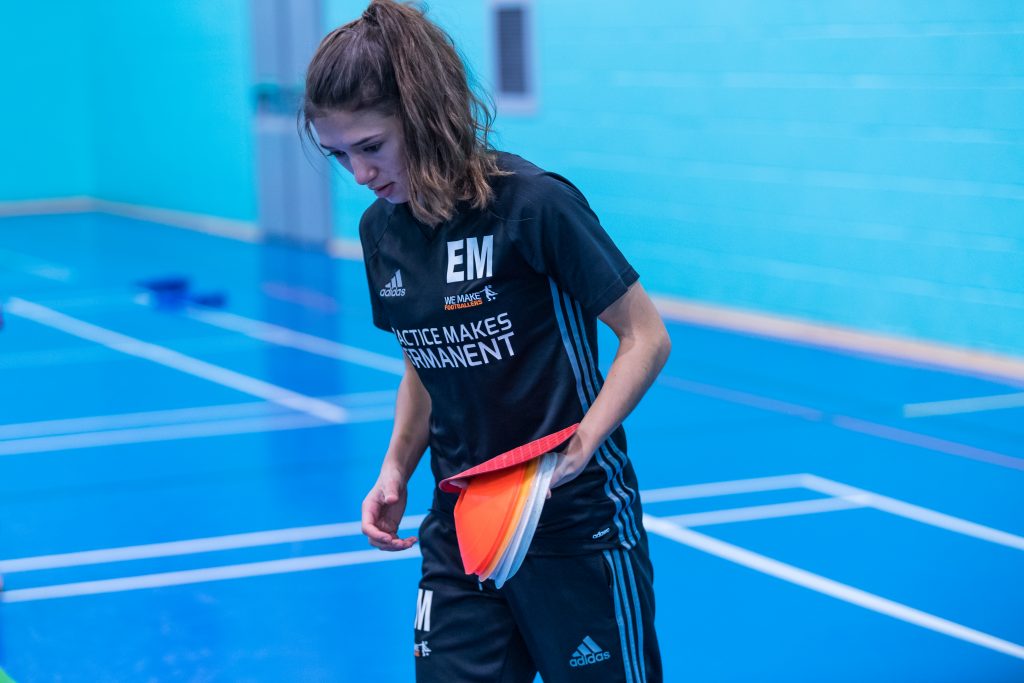Experience is a word that is bandied about all the time when it comes to football managerial and coaching roles, especially at the higher reaches of the game.
Not having enough managerial or coaching experience can often be a difficult obstacle for new coaches to overcome in football when trying to launch a career or go full-time in football.
Why is coaching experience in football so important? Here are five reasons.
Experience gives a coach professional knowledge
Imagine if you had designs on being a scientist and straight out of school found yourself in a role in which you were expected to perform nuclear fusion. You wouldn’t have the knowledge nor the experience to do that, which could lead to disaster. That’s why those scientists trusted with such a task have spent time learning their craft – gaining the professional knowledge needed to carry out the job.
Now, nobody is saying that coaching football is as dangerous a task as fiddling with radioactive substances. But the best coaches will have professional knowledge behind them. This doesn’t mean that to be a good coach you need to have a background as a professional player, it means that you need to be committed to your craft. Completing coaching badges, volunteering, CPD events and getting involved in the game in any way that you can will build your professional knowledge and background.
Focused development can also be key to achieving your coaching goals, think about the age groups, level and environment that you want to coach in and build your experience around it.
You’ll know how to interact with players
Manuals are not enough to teach you is how to interact with your players, experience on the field is key to building this skillset. The greatest managers in the world are the greatest because they can coax the very best out of each and every one of their players and that comes from knowing which buttons to push.
You might have a player who excels when their confidence is boosted through praise and admiration. Alternatively, you may have one who is motivated more by being fired up to do better than they currently are. Carrot or stick? Choosing the right one can make all the difference.
Taking the time to get to know your players is fundamental, they are all individuals and one size does not fit all.
No two players are going to be the same mentally, just as no two people on the planet think exactly the same. Experience of dealing with a wide variety of individuals will give you the tools and knowledge you need to extract the very best out of the players under your charge, no matter what their personality type.
Learn from failure and defeats
The more experience that you have as a coach, the bigger the body of work you’ll have behind you to draw and learn from. That’s what kept Sir Alex Ferguson and Manchester United at the top for so long.
He was constantly looking back over his career at what worked and what didn’t work and was therefore able to reinvent his United team over the course of nearly three decades to always be challenging for honours.
The ability to understand who you are, recognise the journey you’ve been on as a coach and analyse your experiences will allow you to make the most of your talents.
A clear Coaching Philosophy and Playing Style
Philosophy is a word that is bandied around almost as much as experience, but the two go hand-in-hand. A more experienced coach will have a clearer philosophy about how they want to play the game and how they intend to brief their players on doing so, honed over many hours on the training pitch.
A philosophy is important as it affects everything you do, from the sessions you put on to the coaching style you use. If you’re of the Pep Guardiola possession-at-all costs mould, then your coaching will be heavily possession based. A budding Jurgen Klopp will work on fast transitions and moving the ball at blistering pace whilst those inspired by Jose Mourinho will place a huge emphasis on defending. Remember, no philosophy is right or wrong. Respect others in the game and try to learn from new coaching philosophies and playing styles that you may encounter

Even the best coaches have mentors
Perhaps the biggest reason that experience matters in football is because those coaches who have worked under or with another, more experienced coach before setting out on their own have received invaluable exposure to an individual who knows what they are doing. This individual may have an outlook that challenges or develops your own attitude to football.
The best coaches are like sponges – they absorb ideas from anyone and everyone around them. A coach who has been mentored will therefore have picked up knowledge, ideas and experience that you can’t get anywhere else. They also remain objective and are focused on finding the best formula for their team.
Every great manager talks about a mentor whom they worked under and learned from. Mourinho was a translator at Barcelona when he picked up all the tools that would turn him into one of the greats from Sir Bobby Robson. Guardiola had Johan Cruyff at the same club. Going back a few years, Liverpool’s great dynasties of the late 1970s and 1980s were based around the famous Anfield Bootroom, each new manager being appointed internally having learned from the success stories that went before them.
If you’ve already worked with a successful coach and can take their ideas forward and combine them with your own, then you’ve got a far better chance of being a brilliant coach yourself. That’s why experience can make all the difference.
If you’re looking to build your coaching experience and go full-time in football, creating a viable football coaching business is perhaps the right move for you!
